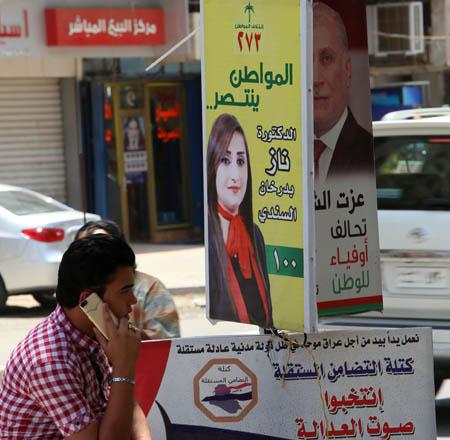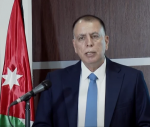You are here
Attacks raise tensions on eve of Iraq polls
By AFP - Apr 29,2014 - Last updated at Apr 29,2014

BAGHDAD — Twin bombings killed 15 people northeast of Baghdad Tuesday, the latest in a wave of deadly violence that has cast a pall over Iraq’s first general election since US troops withdrew.
The bloodshed came a day after a spate of blasts, including 10 suicide bombings, killed 64 people, raising questions over whether Iraq’s security forces can protect upwards of 20 million eligible voters during Wednesday’s polls.
Prime Minister Nouri Al Maliki, under fire over the worst protracted surge in violence in years along with a laundry list of voter grievances, is bidding for a third term in office in the election, the country’s first since 2010.
The Shiite premier has trumpeted a battle against violent jihadists whom he claims are entering Iraq from war-torn Syria and supported by Gulf Arab states including Saudi Arabia and Qatar.
But critics say the authorities’ heavy-handed treatment of minority Sunnis has contributed to the unrest.
In the latest violence, a spate of attacks on Monday killed 64 people in Baghdad as well as north and west of the capital, fuelling fears voters may stay at home rather than risk being caught up in bloodshed.
On Tuesday morning, twin bombings at a market in the town of Saadiyah, northeast of Baghdad, killed 15 more people.
“I can’t imagine the militancy is going to sit back and say, ‘Yeah, have your election’,” said John Drake, a London-based security analyst at AKE Group.
“They are going to make a strong statement undermining the government, undermining the capability of the security forces, and hopefully deterring voters so that the vote result will be seen as illegitimate... in the eyes of many of the electorate.
“This will harm the government, and make the terrorists seem more credible.”
More than 3,000 people have been killed in violence so far this year, according to an AFP tally, including more than 750 already this month.
The unrest is the country’s worst since it was plagued by all-out sectarian fighting in 2006 and 2007 that left tens of thousands dead.
Voter grievances
Authorities have announced a week-long public holiday to try to bolster security for the election, and vehicles will be barred from Baghdad’s streets from Tuesday evening.
No group has claimed responsibility for the latest bloodshed, but Sunni militant groups have been accused of carrying out previous bombings in an attempt to derail the political process.
Though voters nationwide often list an array of grievances, from poor public services, rampant corruption and high unemployment, to say nothing of the persistent violence, the month-long campaign ahead of Wednesday’s vote has centred around Maliki’s bid for a third term in office.
The premier contends that foreign interference is behind deteriorating security and complains of being saddled with a unity government of groups that snipe at him in public and block his efforts to pass legislation.
The 63-year-old who hails from Iraq’s Shiite Arab majority and is accused by his opponents of monopolising power and targeting minority Sunnis, is widely expected to win the largest number of seats in parliament, but is unlikely to win a majority on his own.
He will therefore have to win the support of coalition partners, notably from Kurdish and Sunni parties as well as fellow Shiites who have been critical of his rule, in order to form a government.
But with a fractious and divided opposition, analyst say Maliki remains the frontrunner.
Formation of a government could take several months, however, as the country’s various political groups typically negotiate the senior positions of prime minister, president and parliament speaker as part of a package.
In previous elections, a de facto agreement has emerged whereby the premier is Shiite, the president a Kurd and the parliament speaker a Sunni Arab.
Related Articles
Attacks including a spate of suicide bombings killed 57 people on Monday as soldiers and policemen cast their votes in Iraq’s first parliamentary election since US troops withdrew.
The death toll from twin jihadist bombings that struck a Shiite political rally in the Iraqi capital ahead of next week’s parliamentary election has risen to 33, officials said Saturday.
Seven bombs ripped through Baghdad killing seven people Thursday, hours after American lawmakers criticised the slow pace of political reconciliation in Iraq which they said was stoking the worsening violence.















